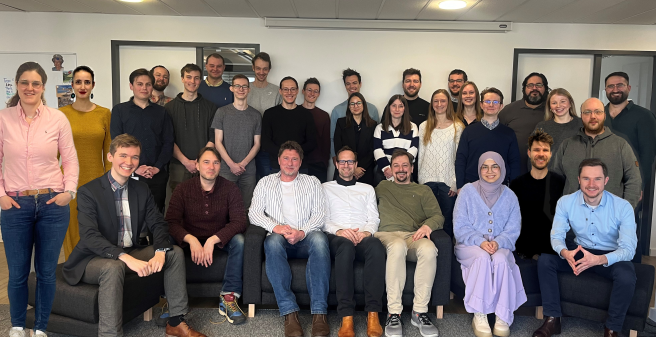Welcome to the Institute for Applied Medical Informatics
The Institute for Applied Medical Informatics (IAM) is part of the Center for Experimental Medicine at the University Medical Center Hamburg-Eppendorf.
The institute, newly created at the beginning of 2021, brings together complex medical data and, in partnership with experts, generates knowledge that can be effectively used against diseases, leading to a deeper understanding of disease and more successful treatment of patients. An agile team creates and publishes innovative processes and tailored methods and tools for physicians and researchers. Our goal is to open up heterogeneous data sets for medical research, to enable interdisciplinary and international collaborations and to simplify complex analyses.
Director IAM
At first, Professor Ückert taught in Münster as an assistant professor and later in Mainz as a university professor and head of medical informatics. During this time, support and often the initiation of medical collaborative research became a focal point for him. An example of a complex collaboration is the German Consortium for Translational Cancer Research (DKTK), one of the German Centers for Health Research funded by the Federal Ministry of Education and Research (BMBF). He was responsible for the development of its IT platform, connecting all eleven DKTK locations and enabling joint research with data and biomaterials. As part of a "leading cluster" (BMBF's high-tech strategy), Professor Ückert also developed an internet-based portal to semi-automatically analyze various omics data combined with clinical data.
From January 2016, he led the Department of Medical Informatics in Translational Oncology at Heidelberg University as a university professor, affiliated with the German Cancer Research Center. Here, highly complex data were transformed into knowledge through partnerships with experts from various disciplines, usable for diagnostic and therapeutic purposes. The data collected in the Data Warehouse, developed in collaboration with SAP, are automatically combined with information from publications and various databases. Through knowledge of models and machine learning algorithms, clinical decision support was provided, and research hypotheses were generated to contribute to a deeper understanding of the disease.




_teaserbild.png)

